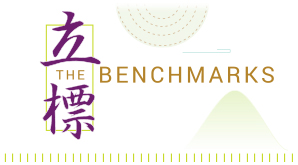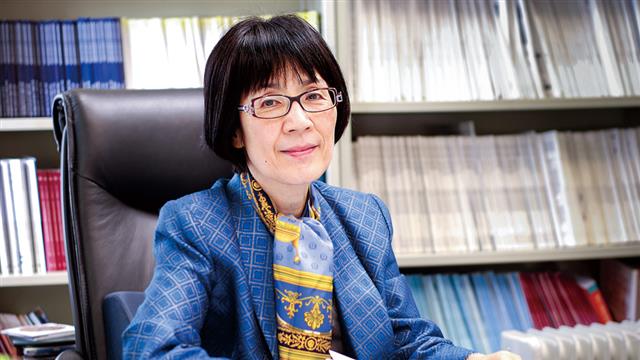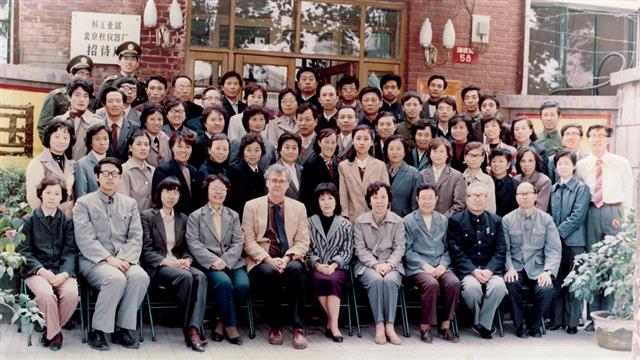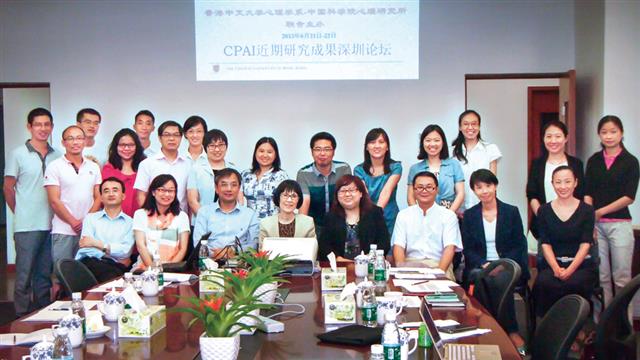Meeting of the Minds, East and West
The Department of Psychology at CUHK has long been committed to rendering and promoting a distinctive Chinese voice in psychology. Its cross-cultural research has presented a clear and strong case for mainstream psychology to answer to the need for a pan-cultural model for understanding human behaviour.
Building bridges across East and West
The first comprehensive volume on Chinese psychology, The Oxford Handbook of Chinese Psychology, was edited by Michael Bond, emeritus professor in Psychology. Other faculty members have developed best practices in translating and adapting major western psychology tests, including the Minnesota Multiphasic Personality Inventory (MMPI) by Prof. Fanny M.C. Cheung and the Achenbach System of Empirically Based Assessment by Prof. Patrick W.L. Leung. Some of them have gone on to develop indigenous psychological assessment for the Chinese people, including the Chinese List Learning Test by Prof. Agnes S.Y. Chan and the Cross-cultural (Chinese) Personality Assessment Inventory (CPAI) by Prof. Fanny M.C. Cheung and her team.
Among these, the CPAI has been recognized as the first non-western personality test that demonstrates research support for its incremental contributions beyond western measures. By adopting a combined emic-etic approach, it established a platform for assessing personality traits across cultures.
The origin of the assessment tool
Professor Cheung said, “Soon after I returned to Hong Kong in the 1970s, I translated the MMPI, one of the most widely used personality tests to provide evidence-based assessment for clinical practice. We later collaborated with the Chinese Academy of Sciences to standardize a common Chinese version of the MMPI. We then pondered: why should we borrow from Western tools and not develop our own personality measure? We set out to develop the CPAI by combining scientific assessment methods of psychology and cultural knowledge to understand Chinese personality.
“We began by collecting diverse personality descriptions from various sources—novels, proverbs, surveys, etc. Our goal was to construct an inventory that is relevant to the Chinese cultural context while meeting the scientific standard expected of established assessment tools.”
The first version of the CPAI was completed in 1991. The 2002 revised and re-standardized second version had 28 normal personality scales, 12 clinical scales and three validity scales. To better understand personality development throughout life, an adolescent version of the CPAI was developed in 2003. Today, CPAI has been translated into six languages and has applications in cultural contexts beyond the Chinese population.
Universality in variety
Professor Cheung said, “In our study we found that many personality traits are universal across cultures; but there was a dimension neglected by western assessment tools—interpersonal relatedness. Western psychology has focused more on individualistic dimensions while an important aspect of Chinese personality is characterized by interpersonal dimensions such as harmony and relationship orientation. Cross-cultural studies arising from CPAI show that these elements are not unique to Chinese culture but found in cultures where collectivism is given emphasis.”
Research with the CPAI has challenged Western-centred mainstream psychology to recognize the need for incorporating a cultural perspective in assessing personality. The combined emic-etic test development method is now regarded as a role model for indigenous and cross-cultural assessment. The CPAI can be used for both normal personality testing and clinical assessment to assist decisions in counseling, staff recruitment, training and career development. The psychology scholars at CUHK have laid down benchmarks for and expanded the cultural boundaries in the science of human behaviour.
The Basics







